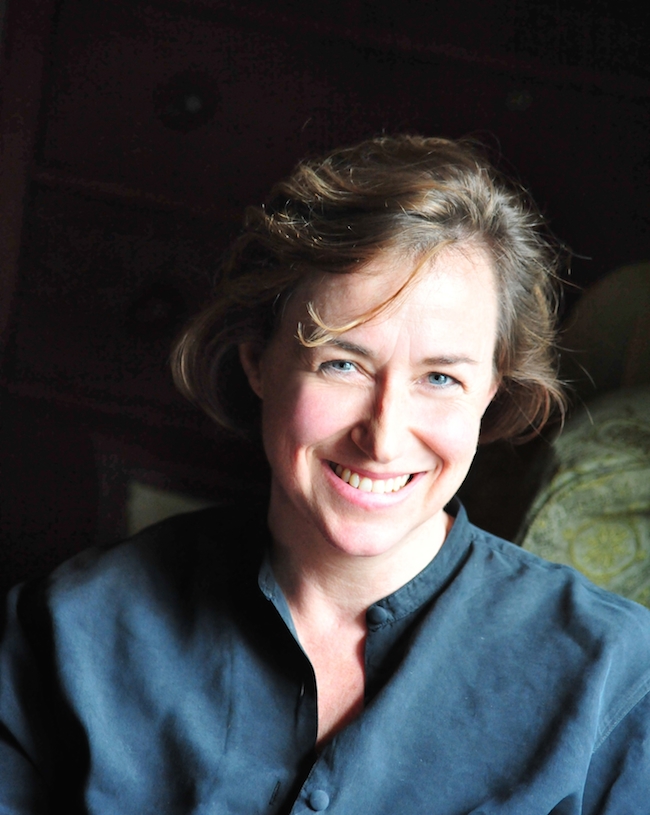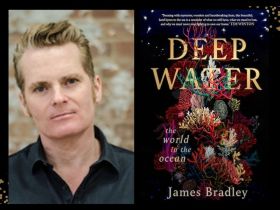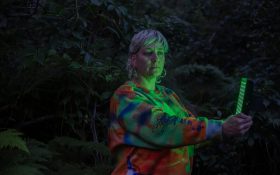The Next Chapter is now open for applications. Image supplied.
When Bundjalung writer Evelyn Araluen found out she’d been selected for The Next Chapter – a unique scheme offering emerging writers a combination of mentorship, a mini-residency and $15,000 cash – she was not in the best place. ‘I was very cranky and standing in the middle a Western Sydney shopping centre waiting for my sister to get her hair cut, and I got a call from an unknown number. I almost didn’t answer it because I was worried it would be a telemarketer,’ Araluen laughed.
Luckily, she picked up the phone. ‘And it was [Wheeler Centre Director] Michael Williams telling me I’d just got The Next Chapter. So I immediately start freaking out in public and everybody was staring at me to see if I’ve just received terrible news or if I’m having a stroke.’
It turned out to be a stroke of good fortune; one that changed Araluen’s career trajectory. About to finish a PhD, she was considering writing less in favour of pursuing a regular income. ‘There’s no transitioning out of the PhDs that institutions offer. Maybe you’ll have a career and maybe you won’t, but that’s up to you and up to a bizarre constellation of circumstances like luck and access.
‘The brilliance of The Next Chapter is that you can fit it into a full time job … In my case it was an important way of moving towards something else, transitioning towards a different process for my work.’
Friend, coach and teacher but all mentor
Mentorship for emerging writers is at the heart of The Next Chapter. Through the scheme, Araluen was paired with her mentor: Aboriginal writer and academic Tony Birch. She said, ‘The support that he gives – and to have my work validated by Tony Birch – is mind-blowing for me, but also for him to bring his experience to the table and say “I know the challenges that you’re going to be going through, I know the best way for you to negotiate them.”’
The role of the mentor brings together several skills – a friend, a close reader of your work, an experienced teacher, and a coach for when you feel like giving up. Araluen said, ‘For me it’s the uncle in an Aboriginal context – it’s an elder of responsibility, knowledge and experience. It’s also the motivator and the sympathiser.’
The complexity of that mentor-mentee relationship was what attracted award-winning short story writer and novelist Cate Kennedy to the scheme. Kennedy, who has been mentoring writer Adam Thompson for The Next Chapter, said, ‘A mentor is not like an editor or a publisher. It’s someone who says “I’m in the same boat as you”. We’re all alone together yet this is a world of people who are sitting in their own rooms thinking about each other’s work. A mentor says “I’m waiting for your work, I’m going to be your best reader ever because I’m looking forward to giving it all of my attention.”’
Kennedy said mentoring is about being able to participate in another writer’s work by balancing advice and support. Kennedy told ArtsHub, ‘It’s that really beautiful thing of walking alongside [your mentee], putting your own stuff aside and not saying, “Here’s how I would fix this if this were my story”. No-one’s learning anything when you’re doing that. Sooner or later a writer is going to be by themselves and what you’re really setting up is that scaffolding to let a writer say “This is my own writing style”.’
The Next Chapter matches writers with their mentors, taking into account the preferences of both. Araluen said, ‘The Wheeler Centre has set up the mentor relationship with an emphasis on compatibility and the mentor’s experience to advise you on the work. They’ve been really careful that these mentors have a sense of what we need rather than what we want.
‘You really need someone to validate your anxiety then [help you] move past that. I’ve been really lucky because Tony hasn’t indulged me or let myself get in the way of the work.’

‘A mentor is not like an editor or a publisher. It’s someone who says “I’m in the same boat as you.”‘ according to mentor Cate Kennedy. Photo credit: Dale Wright.
Beyond a mentor
The Next Chapter offers more than a mentorship. It kicks off with a week spent at Varuna in the Blue Mountains for an intensive writers’ retreat, where the ten successful recipients of the scheme are introduced to one another. This experience was one of the most important aspects for Araluen. ‘Having that week at Varuna at the very start meant that it was the first time we really had the opportunity to sit down with our work since putting in our application … Meeting everybody very early on was a fantastic opportunity to feel validated in what we were doing.’
Having $15,000 to develop work means that participating writers prioritise their writing time while building up their practice. For Araluen this has brought mental space. ‘As a writer I am absolutely made of anxiety, but this has just taken care of some of that. I’ve got a little bit more space in my day and a little bit more space in my brain. I’ve spent this [money] on a laptop and books to read – I haven’t been able to buy books for a while which has been really limiting.’
The Wheeler Centre’s video ‘An introduction to The Next Chapter, and a guide to applying’
Overcoming application anxiety
For many writers, applying for an opportunity like The Next Chapter seems almost impossible. Araluen admits, ‘I just spent all of this time agonising whether it would be the right thing for me to do, given that I was in the tail-end of my PhD and I’m trying to find a stable work/life situation.’
Araluen overcame her fear of applying and sees The Next Chapter as a method of combatting the isolation many emerging writers experience. She said, ‘If you’re worried about whether you’re going to do this as well as you want to, rest assured that you’re going to get help with that and it’s not just going to be on you. It’s not just a solitary mission, it’s really well supported.’
It’s a fear that mentors recognise. While she’s anticipating a new crop of applications, Kennedy knows that applicants may be shy of applying but she encourages writers to take risks. ‘Occasionally you have to push out and carve something new. Breaking new ground only takes a small amount more effort than you’re used to giving … And there is a tipping point where your urge to connect with the world is greater than your fear.
‘And what I’d say is “We are waiting”. There is a group of people who can usher [your writing] into another world. I am waiting on the shore and you are paddling towards us on a raft.’
Applications for The Next Chapter are open until Friday 12 July, 5pm. You can also nominate someone who may be shy about applying.





